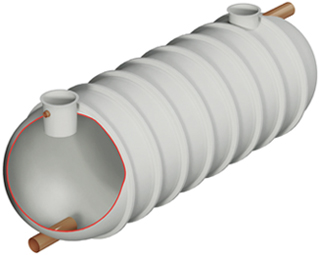During the winter months your drainage system can become victim to harsh, cold weather conditions. Most of the time, taking simple precautionary measures will keep your pipework in good working order. However, if you have an old system, one which has been poorly installed, or you are simply unfortunate enough to go through an unusually bleak winter, the cold weather can be damaging to your drainage. Let’s take a look at what the effects of winter weather on your pipes can be, and how to deal with them.
How the cold can damage pipes
Cold weather is a danger to your pipes both inside and outside of the home. With water regularly flowing through your pipes, the main risk that the cold brings is freezing the water within the pipework. Initially, a small amount of frozen water will just create a blockage in your pipes, meaning that a free flow of water will be obstructed. As more water reaches the icy area, more water will freeze which can block off the entire pipe. This will cause wastewater to back up in your drains and eventually, not flow away at all.
When water freezes, it expands. So, the most dangerous side effect of cold weather for your drains and sewers is that the frozen water will put pressure on and crack or burst your pipes. Especially if the pipe in question is located in your home, this can cause serious structural damage and cost a lot to fix.
How to prevent freezing
Pipes can freeze for several reasons, including:
- Insulation is non-existent, insufficient or of the wrong type
- Drains or sewers are old or haven’t been installed at a sufficient depth
- Water is sitting in pipework for an extended period of time i.e. a property is empty
- Heating is inadequately used in a property
- Uncommonly cold temperatures
Whilst some of these causes will be beyond your control, there are some good preventative practices you can carry out to help keep your pipes from freezing. For example:
- Insulate pipes in cold areas of your home such as the attic and crawl spaces
- Keep your property’s temperature above 12℃, even whilst you are away, to ensure pipes stay warm and adequately above freezing
- Open your attic hatch and cupboard doors which contain pipes when temperatures drop to encourage warmer air to circulate around them
How to cope with frozen pipes
If you do suspect you have a frozen pipe, there are a couple of things you can do to try and clear the blockage. When you have located the suspected blocked pipe, it is important to apply gradual, gentle heat to melt away the icy obstruction. For example, setting up a nearby space heater or wrapping the pipes in towels which have been soaked in hot water should allow a slow thaw.
If you do not feel confident in identifying a frozen pipe, it is best to call a drainage professional, such as Wildon UK. A drainage expert will be able to reliably diagnose and remedy your issue for you. What’s more, although you may be able to handle thawing a frozen pipe, you likely will not be able to solve the underlying problem which led to its freezing in the first place. Our professionals will be able to ensure your pipework is in proper working order and should not freeze again.
Wildon UK are experts in drainage and wastewater solutions. With many years of experience behind us and a team of highly trained, skilled operatives, you can rely on our high quality work on a wide variety of drainage and wastewater issues. Operating across Stoke on Trent, Staffordshire and further afield, we have successfully carried out installations, maintenance and repair work on a huge array of systems at domestic, commercial and agricultural premises. Get in touch with our helpful team today for more information.
Go back to









